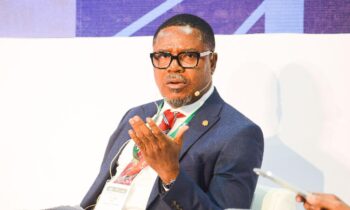
The Nigeria Communications Commission( NCC) which came into existence in 1992 has contributed in no small measures to the growth of the Nigerian economy. The regulator has actively created enabling environment that has attracted investors of various categories to the Nigerian telecommunication sector. For instance, over $2 billion in foreign direct investment was attracted to the industry between 2015 and 2021
The contribution of the industry to the nation’s Gross Domestic Product (GDP) grew from 8.5% in the 4th quarter of 2015 to 12.61 in the 4th quarter of 2021.
As matter of fact, Nigeria’s telecommunications industry, regulated by the Nigerian Communications Commission (NCC), is one of the sectors whose performance lifted the country out of recession in the fourth quarter of 2020.
The achievements of the commission and its efforts toward addressing all the challenges confronting the industry are seen through its areas of key focus and targets which led to the launching of the Strategic Vision (Implementation) Plan SVP 2021 2025, which took into consideration, the provisions of the National Digital Economy Policy and Strategy 2020-2030, and National Broadband Plan 2020-2025.
Professor Umar Garba Danbatta, executive vice chairman of the Commission, said recently that the SVP, which streamlines all policies for a robust sectoral lifting and relevance, has five focus areas which include: operational efficiency and regulatory excellence; facilitation of infrastructure provision for the digital economy; promotion of fair competition, inclusive growth and investment; improvement of quality of serve and quality of experience; and facilitation of strategic collaboration and partnership.
The NCC chief executive listed some other key achievements of the Commission under him including the recent successful auction of 3.5GHz spectrum for 5G services, licensing of 7 fibre optics infrastructure providers, and adding up to 38,296 kilometers of fibre optic in the country. Danbatta notes that access gap clusters in the country have been reduced from 217 to 114 to enable 15 million Nigerians to have access to telecommunications services, and increase of fibre optics deployments from 47,000 kilometers to 54,725 kilometers.
The EVC revealed that the 3G and 4G Base Transceiver Stations (BTS) in the country have increased from less than 30,000 in 2015 to 53,460 while 7 VSAT gateway earth stations have been licensed to boost broadband penetration in the country. The Commission under him has also remitted N463 billion to the Consolidated Revenue Fund from 2015 to April 2022, while landing permits have been issued to 53 Geo Satellite Orbits space stations and 923 non-GSO space stations.
The leadership of the Nigerian Communications Commission has made remarkable strides that have earned spectacular international reputation for Nigeria and placed the telecom regulator at the forefront of the nation’s quest for forward-looking national economic growth.
The entire country, and beyond, is fully aware of the strategic importance of NCC as a regulating institution of the telecommunications industry in Nigeria. And, of course, people aware today that between oil and communications, the latter is gradually taking over in the provision of revenue for the country as the nation strives to diversify the economy,” he said.
The quality of service has improved tremendously over the past few years now and the Commission deserves a pat on the back for what it has done in this direction. Its efforts are generally felt in the economy. So when we talk of the digitalization of the economy the NCC and the operators are the first port of call





